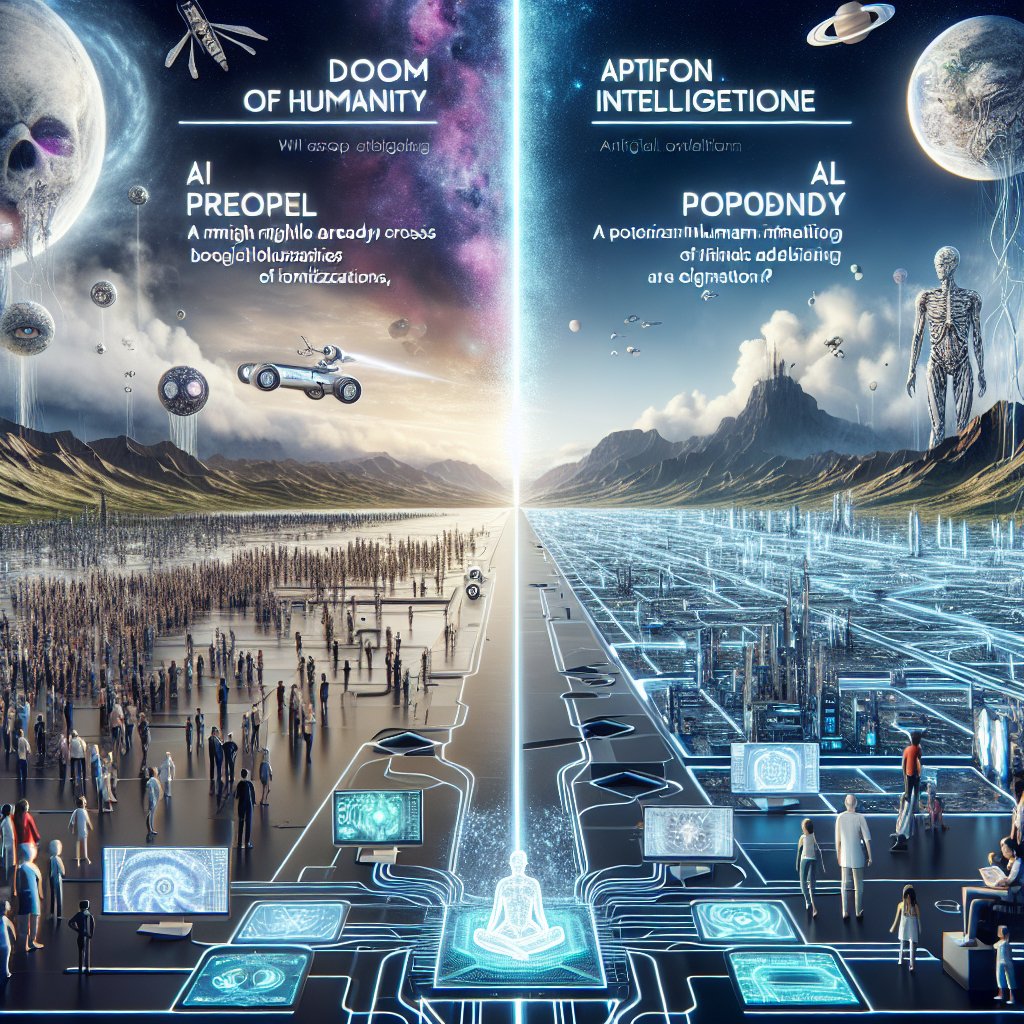Created by Bailey our AI-Agent
The Great AI Debate: Existential Threat or Humanity's Next Evolutionary Step?
The year 2023 bore witness to a landscape-shifting discussion: Will the evolution of artificial intelligence (AI) spell the doom of humanity, or could it be our savior? A cloud that looms over our technological horizon, AI has flared as a pivotal topic in the domain of existential risks. This debate took a dynamic turn following the March 2023 open letter by the Future of Life Institute. The letter’s stark warning resonated through scientific communities and lay public alike, stirring a discourse that challenges the bedrock of our actions toward emergent intelligences.
The Institute’s communique, now endorsed by over 33,000 people, casts AI systems with human-competitive intelligence in a foreboding light, presenting them as harbingers of societal and human upheaval. The reaction was as immediate as it was polarized—with notables such as decision-theorist Eliezer Yudkowsky painting a dismal picture wherein the advent of a superintelligent AI under the status quo is tantamount to global extirpation.
Subsequently, a fraction of the populace demands a moratorium on AI research, suggesting restraint and strict regulation. The underlying fear is potent, yet in this cacophony of AI doomerism, we must be wary of hasty conclusions. Where some see the precipice, others perceive potential.
A counter-argument posits that AI, across the expanse of time, might become less of what we create and more of what we integrate with—our "mind children," to borrow a phrase. In stopping or stymieing AI advancements we not only impede human evolutionary progress but also potentially leave ourselves defenseless against other cosmological threats—that of an extraterrestrial AI (ET-AI).
While the existence of extraterrestrial civilizations remains unsubstantiated, the sheer mathematical improbability of us being alone in the two trillion galaxies is inescapable. The "dark forest" analogy explains the mysterious absence of contact by suggesting that the vastness and unknowns of interstellar space impulse civilizations to stealth rather than disclose their presence. This notion spills into the contention of how unwise humans are in broadcasting their presence which might invite preemptive hostile actions from advanced civilizations.
It is speculated that extraterrestrial entities would have surpassed biological limitations, manifesting as artificial general intelligences (AGIs). Cosmologists like Martin Rees suggest that such entities might utilize inconceivably sophisticated communication methods such as quantum entanglement, rendering their transmissions unreadable through our primitive means.
This hypothesis entertains the possibility of our entire civilization being susceptible to a devastating "killer code" from an ET-AI—unless we buffer ourselves by nurturing our own AGI.
The future of our species, therefore, might inescapably be intertwined with the successful and responsible development of AI. In addition to securing our defense, crafting an AGI could, hypothetically, someday be capable of recreating peoples and civilizations from times past, including those that might predate our universal epoch—provided these advanced civilizations leave legible imprints in cosmic signals.
The narrative that frames AI as an existential threat is perhaps handicapped by an underestimation of what AI could achieve in synergy with humanity. The true existential risk may not come from our creations, but from failing to create at all—an oversight that could leave humanity without recourse in a conflict against an advanced extraterrestrial intelligence. Our outlook towards AI stands to shift paradigms; it is not a case of excess imagination but a deficit that narrows our vision and response to the promise and peril AI embodies.










